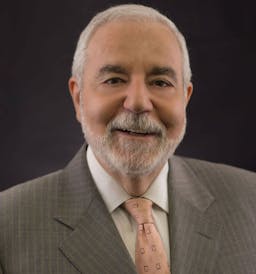
Dan Brecher
Counsel
212-286-0747 dbrecher@sh-law.comAuthor: Dan Brecher|July 18, 2016
Commercial litigation is often contentious. Yet the large majority of cases are still resolved short of going to trial – this is where commercial litigation settlements will come into play. In the State of New York, a new rule recently took effect that is intended to encourage court-facilitated settlement discussions. In cases heard by the Commercial Division of the Supreme Court, the parties can now jointly request the court to appoint a judge, other than the one assigned to hear the case, to conduct a settlement conference.
The amended Rule 22 NYCRR 202.70(g) specifically states:
Should counsel wish to proceed with a settlement conference before a justice other than the justice assigned to the case, counsel may jointly request that the assigned justice grant a separate settlement conference. This request may be made at any time in the litigation. Such a request will be granted in the discretion of the justice assigned to the case upon finding that a separate settlement conference would be beneficial to the parties and the court and would further the interests of justice. If the request is granted, the assigned justice shall make appropriate arrangements for the designation of a “settlement judge.”
As highlighted by the Commercial Division Advisory Council, the rule is intended to encourage candid settlement discussions “without telegraphing the weaknesses in a case to the presiding trial judge.” The rule also aims to assist trial judges who are often reluctant to get involved in negotiations of a matter that they may ultimately be asked to decide. In support of the rule, the Council also noted that the practice is used on the federal level, where district court judges routinely assign a magistrate judge or an independent court-appointed mediator to hear settlement conferences.
As we have discussed on our Business Law News Blog, there are several advantages of negotiating a settlement. Most notably, the parties control their own destiny and have complete control over the terms of the agreement. No matter how strong a case may appear on paper, going to trial always requires a roll of the dice.Settlement may present the most practical option. For instance, resolving business litigation out of court is almost always more cost-effective and will always take less time than a trial. In addition, settlement often allows the two sides to explore more creative solutions, such as payments over time, or exchanging different assets from those in dispute. By comparison, courts can be handicapped by statutes and legal precedent.
Are you considering settlement as an alternative? Do you have any questions regarding the matter? Please contact me, Dan Brecher.

Counsel
212-286-0747 dbrecher@sh-law.comCommercial litigation is often contentious. Yet the large majority of cases are still resolved short of going to trial – this is where commercial litigation settlements will come into play.  In the State of New York, a new rule recently took effect that is intended to encourage court-facilitated settlement discussions. In cases heard by the Commercial Division of the Supreme Court, the parties can now jointly request the court to appoint a judge, other than the one assigned to hear the case, to conduct a settlement conference.
In the State of New York, a new rule recently took effect that is intended to encourage court-facilitated settlement discussions. In cases heard by the Commercial Division of the Supreme Court, the parties can now jointly request the court to appoint a judge, other than the one assigned to hear the case, to conduct a settlement conference.
The amended Rule 22 NYCRR 202.70(g) specifically states:
Should counsel wish to proceed with a settlement conference before a justice other than the justice assigned to the case, counsel may jointly request that the assigned justice grant a separate settlement conference. This request may be made at any time in the litigation. Such a request will be granted in the discretion of the justice assigned to the case upon finding that a separate settlement conference would be beneficial to the parties and the court and would further the interests of justice. If the request is granted, the assigned justice shall make appropriate arrangements for the designation of a “settlement judge.”
As highlighted by the Commercial Division Advisory Council, the rule is intended to encourage candid settlement discussions “without telegraphing the weaknesses in a case to the presiding trial judge.” The rule also aims to assist trial judges who are often reluctant to get involved in negotiations of a matter that they may ultimately be asked to decide. In support of the rule, the Council also noted that the practice is used on the federal level, where district court judges routinely assign a magistrate judge or an independent court-appointed mediator to hear settlement conferences.
As we have discussed on our Business Law News Blog, there are several advantages of negotiating a settlement. Most notably, the parties control their own destiny and have complete control over the terms of the agreement. No matter how strong a case may appear on paper, going to trial always requires a roll of the dice. Settlement may present the most practical option. For instance, resolving business litigation out of court is almost always more cost-effective and will always take less time than a trial. In addition, settlement often allows the two sides to explore more creative solutions, such as payments over time, or exchanging different assets from those in dispute. By comparison, courts can be handicapped by statutes and legal precedent.
Settlement may present the most practical option. For instance, resolving business litigation out of court is almost always more cost-effective and will always take less time than a trial. In addition, settlement often allows the two sides to explore more creative solutions, such as payments over time, or exchanging different assets from those in dispute. By comparison, courts can be handicapped by statutes and legal precedent.
Are you considering settlement as an alternative? Do you have any questions regarding the matter? Please contact me, Dan Brecher.